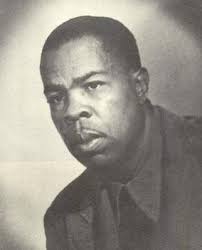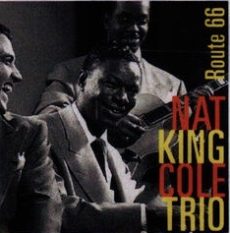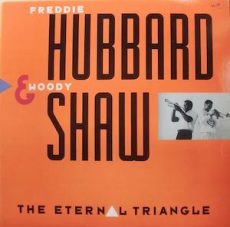
Daily Dose Of Jazz…
Mike Stern was born Michael Sedgwick on January 10, 1953 in Boston, Massachusetts and grew up in Washington, D.C. He attended the Berklee College of Music in Boston and when he was twenty-two, he became a member of Blood, Sweat & Tears, spending three years with the band. During this stint he appeared on the albums More Than Ever and Brand New Day.
1979 saw him joining Billy Cobham’s fusion band. Two years later he joined Miles Davis, making his public debut in 1981, a performance recorded on the album We Want Miles. He remained with Davis through 1983 until he was replaced by guitarist John Scofield. From 1983 to 1984 he toured with Jaco Pastorius and in 1985 returned to tour with Davis.
Stern’s solo debut, Upside Downside, with Jaco Pastorius, David Sanborn, and Bob Berg, was released on Atlantic Records in 1986. For the next two years he was a member of Michael Brecker’s quintet, appearing on Don’t Try This At Home. His second Atlantic album, dropped in 1988, was Time in Place, and he would go on to release more than a dozen albums.
He formed a touring group in 1989 with Bob Berg, Dennis Chambers and Lincoln Goines. His acclaimed 1993 album, Standards (and Other Songs), led to his being named Best Jazz Guitarist of the Year by the readers and critics of Guitar Player. He was nominated for two Grammy awards, received another Best Jazz Guitarist award, and in 2009 in the first of a series of articles celebrating Down Beat‘s 75th anniversary, Stern was named one of the 75 Great Guitarists of all time.
Serious injuries to his shoulders and right arm after tripping and falling led to the ending of his 2016 European tour. Modifying his playing technique in the summer of 2017 he returned to Europe on tour with a new formation called Mike Stern/Randy Brecker Band, featuring Randy Brecker, Teymur Phell and Lenny White.
Guitarist Mike Stern, who received a Certified Legend Award from Guitar Player magazine, continues to perform, record and tour.
More Posts: bandleader,guitar,history,instrumental,jazz,music

Jazz Poems
JAZZ BAND Play that thing, you jazz mad fools! Boil a skyscraper with a jungle Dish it to ‘em sweet and hot— Ahhhhhhhhh Rip it open then, sew it up, jazz band! Thick bass notesfrom a moon faced drum Saxophones moan, banjo strings hum High thin notes from the cornet’s throat Trombone snorting, bass horn snorting Short tan notes from the piano And the short tan notes from the piano Plink, plank, plunk a plunk Plink, plank, plunk a plunk Chopin gone screwy, Wagner with the blues Plink, plank, plunk a plunk Got a date with Satan—ain’t no time to lose Plink, plank, plunk a plunk Strut it in Harlem, let Fifth Avenue shake it slow Plink, plank, plunk a plunk Ain’t goin’ to heaven nohow— crowd up there’s too slow Plink, plank, plunk a plunk Plink, plank, plunk a plunk Plunk Do that thing, jazz band! Whip it to a jelly Sock it, rock it; heat it, beat it; then fling it at ‘em Let the jazz stuff fall like hail on king and truck driver queen and laundress, lord and laborer, banker and bum Let it fall in London, Moscow, Paris, Hongkong, Cairo, Buenos Aires, Chicago, Sidney Let it rub hard thighs, let it be molten fire in the veins of dancers Make ‘em shout a crazy jargon of hot hosannas to a Fiddle-faced jazz god Send Dios, Jehovah, Gott, Allah, Buddha past in a high stepping cake walk Do that thing, jazz band! Your music’s been drinking hard liquor Got shanghied and it’s fightin’ mad Stripped to the waist feedin’ ocean liner bellies Big burly bibulous brute Poet hands and bone crusher shoulders Black sheep or white? Hey, Hey! Pick it, papa Twee twa twee twa twa Step on it, black boy Do re mi fa so la ti do Boomp boomp Play that thing, you jazz mad fools!FRANK MARSHALL DAVIS
from Jazz Poems | Selected and edited by Kevin Young
More Posts: book,classic,collectible,history,jazz,library,poet

Daily Dose Of Jazz…
Charles Pervis Harris was born in Alexandria, Virginia and raised in Baltimore, Maryland on January 9, 1916. He studied violin before switching to bass in high school. He played professional dates while studying education at what is now Coppin State College. He went on to work at the Royal Theater in Baltimore after graduating.
Joining Lionel Hampton in 1941, he played with him for several years and was one of three bassists in Hampton’s ensemble, one of his bandmates being Charles Mingus. Harris did some recording with Dizzy Gillespie in the 1940s as well. Fatigued from touring he returned to Baltimore in 1949.
Soon after he worked in a band called Three Strikes and a Miss, again at the Royal Theater. While working there Nat King Cole heard him and asked him to join his trio. During his tenure with the vocalist, Charlie performed on some of Cole’s best-known tunes, such as Unforgettable, Route 66, It’s Only A Paper Moon, Sweet Lorraine and Mona Lisa. During the 1956-57 season he performed on Nat’s tv show on NBC.
After leaving the band he returned to Baltimore and remained there, playing, teaching, and working as a furniture salesman. Double bassist Charlie Harris died from cancer on September 9, 2003 at Bon Secours Hospital.
More Posts: bass,history,instrumental,jazz,music

Daily Dose Of Jazz…
Bobby Battle was born on January 8, 1944 and grew up in Detroit, Michigan. He moved to New York City in 1968, playing with Roland Kirk and Pharoah Sanders shortly after his arrival.
He studied at New York University from 1972 to 1975. He played with Don Pullen and Sam Rivers through the late 1970s, and worked often with Arthur Blythe in the 1980s and 1990s. He also worked with Kenny Dorham, Sonny Stitt, and Sonny Fortune. He worked as a duo with Jimmy Ponder in 1987.
Battle’s only release as a leader is The Offering, issued in 1990 on Mapleshade, on which Battle leads a quartet with David Murray, Larry Willis, and Santi Debriano. As a sideman he recorded four albums with Arthur Blythe and four with Don Pullen.
Drummer Bobby Battle, who occasionally played saxophone, died on December 6, 2019 in his hometown.
More Posts: bandleader,drums,history,instrumental,jazz,music

Requisites
The Eternal Triangle ~ Freddie Hubbard and Woody Shaw | By Eddie Carter
Freddie Hubbard and Woody Shaw enter this morning’s spotlight with a superb 1987 sextet album, The Eternal Triangle (Blue Note B1-48017). I’m a long-time fan of both trumpet players and have been listening to their albums recently. The Eternal Triangle is their second collaboration after Double Take, recorded and released two years earlier. Freddie is heard on the left channel, and Woody is heard on the right channel. Returning from the earlier session are Kenny Garrett on alto sax, Mulgrew Miller on piano and Carl Allen on drums. Ray Drummond takes over on bass for this date. My copy is the original U.S. Stereo release.
Down Under by Freddie Hubbard starts Side One with the rhythm section’s infectious introduction to the sextet’s danceable theme. Freddie kicks off the opening line with a strong tone. Mulgrew continues the effortless swing in the following reading. Woody makes quick work of the third solo, and then Kenny has a fine spot ahead of the ensemble’s return that fades out slowly. The Eternal Triangle by Sonny Stitt comes at you fast and furious from the sextet’s rapid-fire melody. Hubbard takes us for a high-speed ride first, and then Garrett heats things up in the second statement. Shaw steps up next for an aggressive reading. Miller gives a spirited presentation, and Carl ends the solos with a brisk workout into the reprise and quick stop.
The Moontrane by Woody Shaw takes off with him leading the ensemble in a lively melody. Woody is the first soloist, and he comes out swinging. Kenny gives a brisk reading in the second spot. Freddie adds a bit more fuel to the fire in the following statement, and Mulgrew leads us to a swinging conclusion with an inspired interpretation. Side Two gets underway with the sextet keeping its foot on the gas for Calling Miss Khadija by Lee Morgan. It begins with the rhythm section’s introduction; then, the front line joins in for the melody. Shaw ignites the song’s first brightly burning flame. Miller whets our appetite further in the second statement, and then Hubbard has a few memorable moments next. Garrett comes in to give a sizzling solo, and Carl gets the last word in a vigorous finale before the ensemble returns.
I first heard Freddie Hubbard’s Nostrand and Fulton on an earlier album, Here To Stay. The song’s title comes from a Brooklyn intersection, and the sextet begins the melody vibrantly. Freddie dives into the opening solo and wails, then Kenny follows with some heated sax play. Woody tackles the next reading with passionate fire, and Mulgrew closes with a very enthusiastic statement ahead of the theme’s reprise and conclusion. Tomorrow’s Destiny by Woody Shaw is off to the races from the sextet’s opening chorus. Miller is up first with a solo of high-spirited delight. Shaw goes to work next on a swift reading, then comes Hubbard’s exhilarating statement. Garrett builds the song’s final interpretation into an impressive conclusion preceding the ensemble’s ending theme and exit.
Michael Cuscuna and Don Sickler produced The Eternal Triangle. The recording engineer was Rudy Van Gelder. It is a full digital recording that emerges from your speakers with a stunning soundstage. The musicians are transported to your listening room with excellent fidelity. The pressing is also quite good, and the record is noticeably quiet until the music starts. If you are a fan of Freddie Hubbard and Woody Shaw, I hope you will consider The Eternal Triangle on your next record shopping trip. In my opinion, it’s one of the best albums in both musician’s discographies and a terrific release worthy of a spot in any jazz lover’s library!
~ Double Take (Blue Note BT-85121), Here To Stay (Blue Note BST-84135) – Source: Discogs.com © 2024 by Edward Thomas Carter For the serious collector of jazz… #Jazz #Classic #Collectible #Music #Notorious
More Posts: choice,classic,collectible,collector,history,instrumental,jazz,music,trumpet



